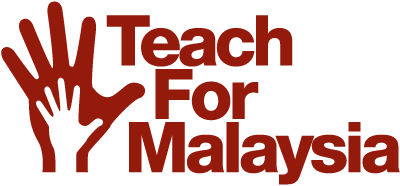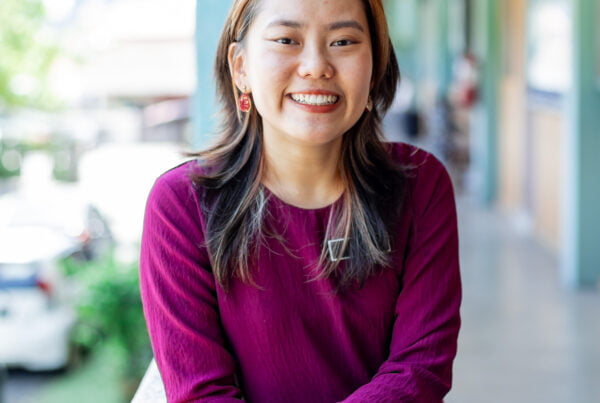Teach For Malaysia is a partner of the Teach For All Global Network , fighting education inequity alongside 31 other Global Partners. Here, Edna Novak, our Teach For All Regional Director for East Asia and Pacific region talks about their role in helping us accelerate growth and impact against education inequity in Malaysia.
“I want Malaysian children to be recognised worldwide for character traits, like resilience, perseverance, optimism and self-control; and are actively sought out by journalists, universities, companies, and top leadership programmes as such. And I want to see Malaysian children growing up wanting nothing more than to join Teach For Malaysia, because their experiences with Teach For Malaysia Fellows have transformed so many of their own lives.”
1. What is Teach for All?
Teach For All is a global network of leaders working to end educational inequality in their countries and across the world. Teach For All accelerates the progress and increases the impact of its partners by facilitating knowledge capture, high-impact direct connections, access to global resources and leadership development. Today, the Teach For All network includes over 32 partner organisations globally, from Teach For Argentina to Teach For Qatar. Teach For All partner organisations all share a similar approach: recruiting and developing outstanding graduates and professionals to teach in their countries’ most high-need classrooms, fuelling immediate impact as well as long-term movements for systemic change.
2. What inspired you to join Teach For All?
I began as a Teach For America corps member (Fellow) after I graduated in 2002. I taught third grade (8-10 year olds) in a very rural community about 50 km west of New Orleans, Louisiana. The experience was life-changing. Beforehand, I thought I would teach for two years and then go to law school and perhaps work in the field of juvenile justice. But teaching transformed me. My students were amazing, witty, and brilliant, and I became more and more frustrated about all the things holding them back from having a fair shot in life. I didn’t want to spend the rest of my career trying to fix things for people who had already lost their way in our broken system; I wanted to change the system itself and help expand opportunities for all kids so there would be fewer going into juvenile detention in the first place. I continued to work for Teach For America in various roles for the next few years, most recently as the executive director of the Connecticut region, I began to engage a little bit with Teach For All by hosting a network learning trip and connecting virtually with some Teach For All partners and staff. In 2012, I had the opportunity to work with Teach For All’s partners in New Zealand and Australia. I jumped at the chance to share and learn from some entirely new and different contexts and cultures, and to begin thinking about this work on a global scale.
3. What is your role at Teach For All?
My role at Teach For All is the Regional Director for our East Asia & Pacific region, which currently includes our partners in China, Japan, Malaysia, Thailand, the Philippines, Australia, and New Zealand. The Senior Director for our region (Rebecca Helmer) and I share responsibility for our East Asia & Pacific partners, and I currently serve as the primary point person for our partners in Australia, New Zealand, Malaysia and the Philippines. It’s my responsibility to coordinate and deliver support across 4 primary channels: (a) direct support (e.g. visits and virtual consultation), (b) peer to peer learning opportunities (between network partners), (c) access to shared resources, and (d) leadership development opportunities (for participants, Alumni, and staff). So, in sum, I spend a lot of my time visiting our partners and/or on Skype, trying to help our partners learn as much from each other and from the network so they can have a bigger, faster impact in their countries.
4. What sort of collaborations do you encourage between Global Partners?
Teach For Malaysia in many ways epitomizes the sort of collaboration we aim to encourage between global partners of Teach For All! For example, in the “direct support” category, we invite partners to both participate in and host learning experiences, such as the conference TFM hosted in August 2013, which focused on management training for senior leaders across this Teach For All region. In the “peer to peer learning” channel, we encourage partners to both virtually and physically connect with and learn from each other. For example, TFM recently welcomed the new head of training & support from Teach For Qatar to visit and learn from TFM’s summer institute. In the “resource sharing” space, we invite partners to share tools and resources with each other, to learn as much as possible from others’ examples. For instance, many Teach For All partners have looked to TFM’s strategic plan as an example to learn from, which has been possible because TFM has proactively shared their strategic plan and associated resources with the network.
For some more examples of network learning that we are seeing thanks to great collaboration between our partners, check out this page of our website.
5. Are there any key projects Teach For All is currently working on that could help TFM accelerate growth and impact?
There are many! One key project underway is the development of our “Partner Learning Portal,” an extranet which we hope will significantly improve how our partners share, find, and access knowledge and resources from other partners. We expect this revamped portal to increase the efficiency and effectiveness of “knowledge sharing” between our partners, enabling more collaboration and learning. Another big “project” of sorts that we hope will lead to greater support to TFM and our other partners is Teach For All’s restructure, which has been underway for the last few months. We aim to have a team of specialists in every region (East Asia & Pacific in our case) across the key areas of Recruitment & Selection, Participant & Alumni Impact, Organisational Development, and Public & Private Sector support. We hope this increased capacity will fuel even stronger collaboration and support for our partners across these core functional areas.
6. What is your hope for the children in Malaysia?
Oh goodness, what a big question! My hope for the children of Malaysia is the same as what I would hope for my own students. I hope to see children in Malaysia leading the world a generation from now, in academic outcomes, ingenuity, and leadership. I hope to see Malaysian students overrepresented in the world’s top universities, leading a disproportionate number of global companies and organisations, and responsible for some of the world’s most effective innovations and solutions across hundreds of industries. I want Malaysian children to be recognised worldwide for character traits, like resilience, perseverance, optimism and self-control; and are actively sought out by journalists, universities, companies, and top leadership programmes as such. And I want to see Malaysian children growing up wanting nothing more than to join Teach For Malaysia, because their experiences with TFM Fellows have transformed so many of their own lives, and they know that there is nothing more important that they can do in launching their careers.




